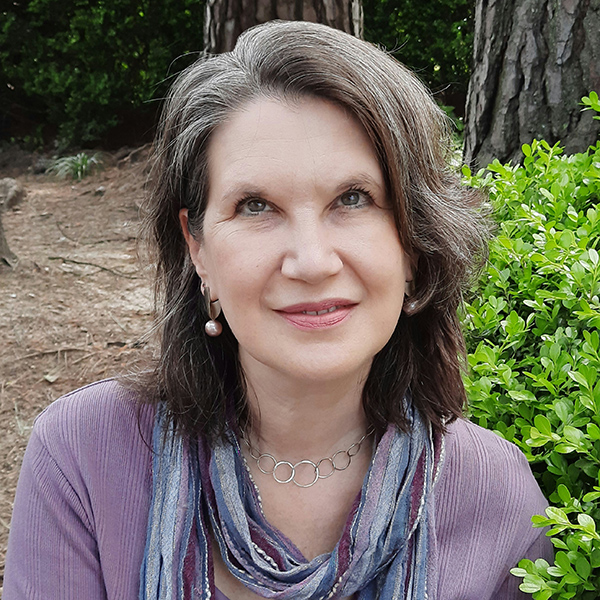On Easter morning this year, I chanted the eucharistic prayer.
Twice.
That shouldn't be noteworthy -- after all, I am an Episcopal priest. But until recently, I was a priest with a phobia of singing or chanting solo. Even in a group, I was afraid to sing loudly enough to be heard by anyone. Although I had been trained to chant and could do fine in front of one or two trusted people, terror wiped out my competence when I stood before a congregation.
Clearly, such a phobia would be a handicap for clergy in any denomination that chants the eucharistic prayer at least some Sundays every year. And for almost any Christian, a fear of group singing would detract enormously from the joy of worship.
Yet as phobias go, mine wasn't that bad. It didn't interfere with my daily life, or even, really, with my ability to do my job. I simply spoke the prayers and sang very quietly.
Mostly, my fear embarrassed me. It was ridiculous. I could understand my friends' fears of flying or dogs, because those things could conceivably be dangerous. But I was terrified by something that posed zero physical threat to me -- and that irritated me.
Phobias, however, are by definition irrational. I've always been perfectly comfortable speaking (just not singing) before large crowds, a trait that has served me well in a decade as a priest. But for most people, public speaking is more terrifying than even death. As comedian Jerry Seinfeld has joked, the average person attending a funeral would rather be in the casket than in the pulpit.
This Lent, the truth of Seinfeld's quip struck me in a new way. I realized that my inability to chant was itself a small death. It kept me stuck in the past, focused on an old wound.
I can pinpoint the moment when the phobia took root. I have a crystal-clear memory of sitting in the back seat of a car when I was 5, singing my lungs out, and being told by the driver, my father, to "shut up."
He died 25 years ago, and I never asked him about the incident. My guess is that he would not even have remembered it if I had. Maybe he was having a hard day, maybe traffic was bad, maybe he'd just had his fill of my singing. Whatever the reason, my 5-year-old feelings were hurt. Over the years, a variety of anxieties coalesced around that one instance of a child's joy quashed.
As an adult preparing for ordination, I tried to overcome this fear. On the assumption that competence would inspire confidence, I took chanting lessons. After weeks of practice with my coach, it became clear that, while I would never be a soloist in the choir, I had the skills to chant the Eucharist. I was in control. I could do this.
But the first time I stood at the altar to chant on a Sunday morning, my throat closed, my body shook uncontrollably, and nothing more than a dry, breathless croak escaped my mouth.
Clearly, I wasn't going to get very far relying on my own skills.
So I tried drugs. My doctor prescribed beta blockers, but they were no match for my tremors and shortness of breath, and the pills made me so lightheaded that I feared I would pass out at the altar. The treatment was worse than the disease.
For several years, I simply accepted my phobia and lived as a priest who didn't chant. But just before Lent this year, I wondered if it might be time to try a new approach. Instead of trying to overcome the past by becoming stronger, I would be vulnerable and ask God's help to heal old wounds.
God's instrument was a hypnotherapist.
Holly, who has a Ph.D. in psychology, is nothing like the hypnotists we've all seen in movies. She didn't swing a pocket watch in front of my face. She never said, "You are now under my power."
Instead, she taught me to enter a trance state (essentially, relaxing through deep, focused breathing) to access my unconscious mind. There I would give myself positive suggestions to replace my negative thoughts and feelings about chanting. The goal was simple: for me to be relaxed enough behind the altar to offer the priest's part of the eucharistic prayer.
But first we traveled back in time to meet the angry, frightened little girl who still lived in my unconscious, decades after she had been told to shut up. We acknowledged her hurt feelings and comforted her. We considered what might have made my dad impatient that day, and I forgave him. With that memory healed, I was ready to practice.
Self-hypnosis became a Lenten discipline. For 15 minutes a day, I went into a trance and told myself: "I am a priest who chants," and "Jesus will touch my throat and open it up, to give me the breath I need." Most importantly: "I don't have to chant perfectly. No matter how it sounds, the congregation and I will all be worshipping God together."
Over six weeks, I became a more relaxed singer, my voice ringing out during the solemn Lenten congregational chants and slow, meditative hymns. Thanks to my daily practice of self-hypnosis, I began to feel joy at the prospect of chanting with my congregation on Easter morning and singing the "Alleluias" we had given up during Lent.
When the day finally arrived, I took my place behind the altar. My legs shook and my heart beat faster, but when I opened my mouth, chant came out. I was healed; the past was behind me.
My voice didn't sound exactly the way I wanted it to. It was higher and less controlled than in practice sessions. But unlike my younger self, I knew that my level of skill was irrelevant to our celebration of Christ's resurrection.
I chanted. The people chanted back. And God was worshipped. The 11 a.m. Eucharist was easier than the 8 a.m., and I've become even more relaxed in the Sundays since.
This Lenten discipline and Easter celebration taught me much more than self-hypnosis skills. As I learned to trust God's power to heal a small yet deeply felt past hurt, I understood anew our Christian proclamation that strength is found in vulnerability. As an ordained leader, I embodied that truth in a new way, allowing my parishioners to witness me doing something that many knew had terrified me.
Now, I wonder: Where else in my ministry might I risk being more vulnerable? Where might I admit that my skill isn't sufficient for the challenge at hand, that no matter how hard I try, I can't find a solution on my own?
Where have I been seeking a panacea -- beta blockers for the church -- that will simply mask symptoms rather than address the root causes of whatever's making me or my congregation uncomfortable or frightened? What new joys might be in store for congregations and lay and ordained leaders if we will admit what most terrifies us and ask God to work through it for God's own healing purposes?
We all have fears. When I told a few clergy friends about my work with Holly, three of them told me that they too had been referred to her for help with everything from insomnia to performance anxiety.
Easter is the season to begin asking these questions, and to let them guide us toward resurrection, toward a wholehearted proclamation that the Lord is risen indeed -- and so are we.
Alleluia!








